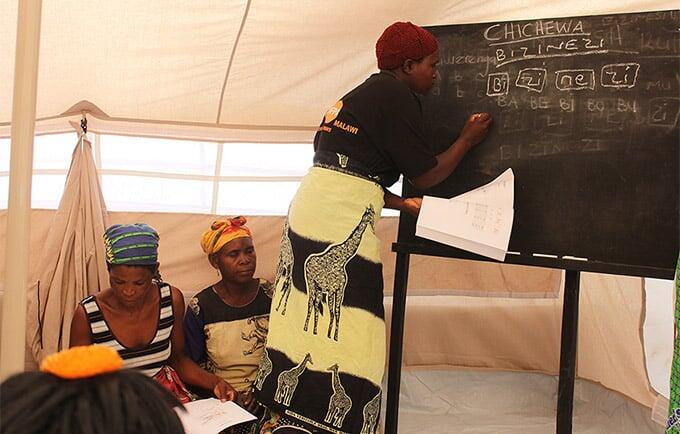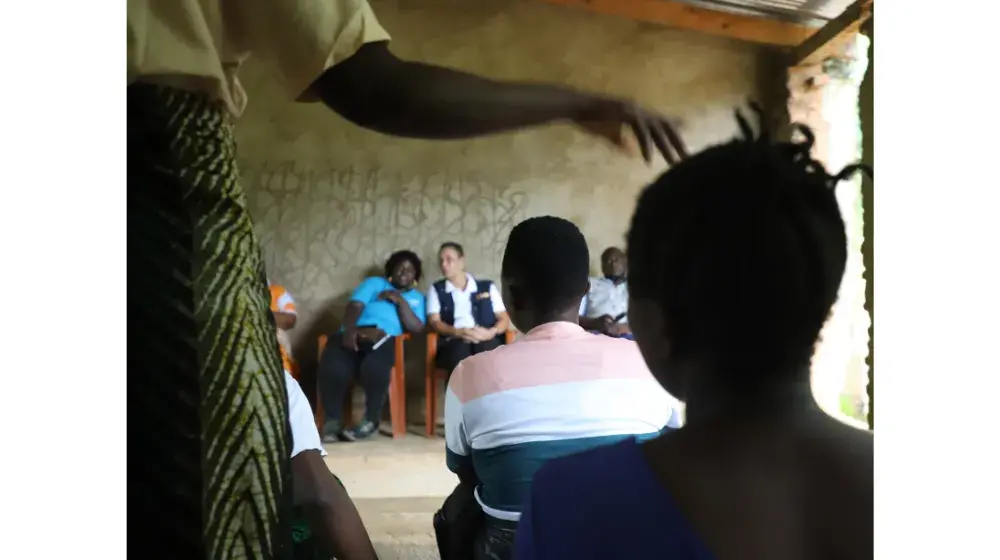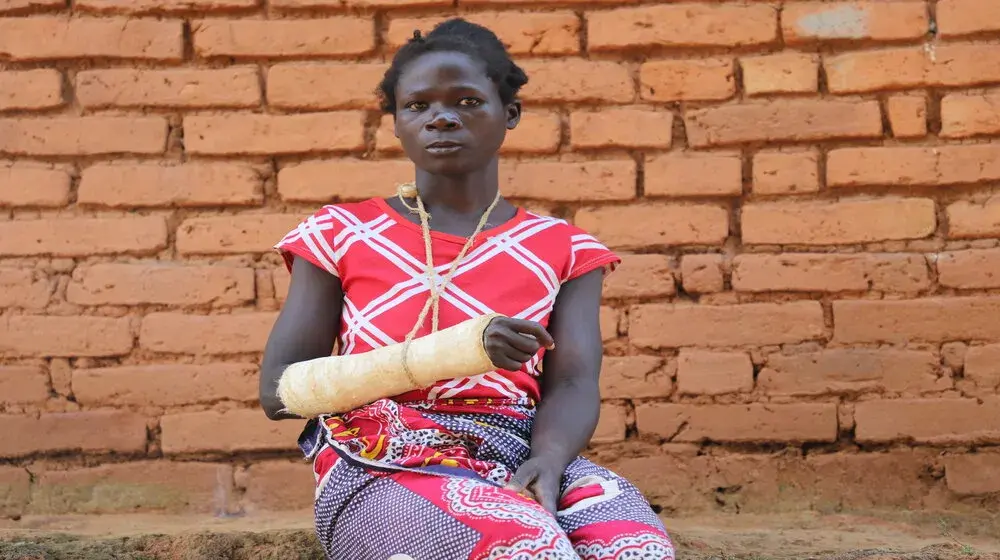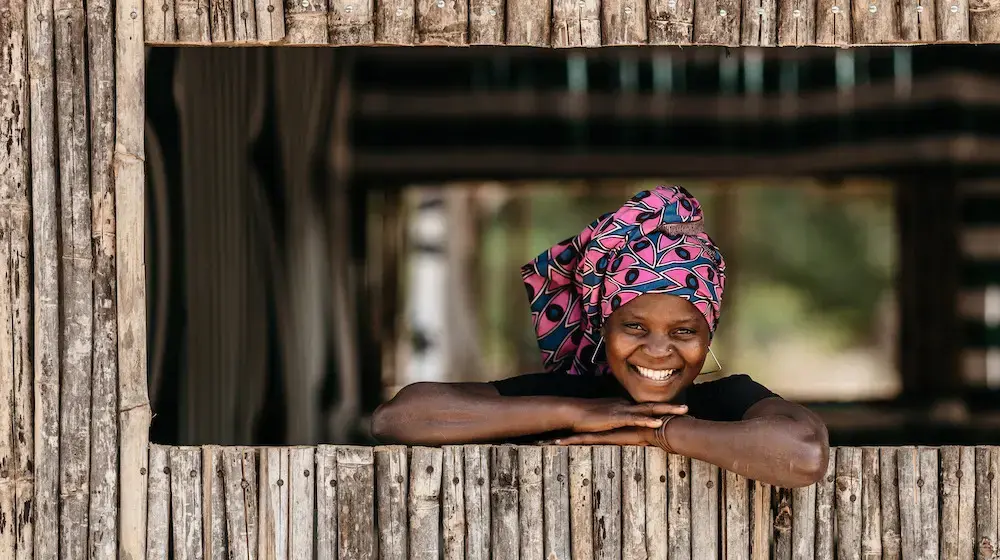Chikwawa, Malawi - Thursday 5th March will remain an unforgettable day for 43 year old Mary, an Internally Displaced Person (IDP) living at Jombo camp in Chikwawa District. Chikwawa is one of the four districts most affected by the floods in Malawi.
In what is likely to be one of the deadliest natural disasters to ever hit the country, heavy rains and stormy winds have hit the south of the country since January 2015, triggering rampaging floods that have left at least 104 killed, 645 injured, and 172 either dead or missing. The current number of people displaced to temporary sites in all the 15 districts included in the Declaration of Disaster by the State President on 13 January 2015 is about 230,000.
International Women's day was commemorated early, on 5 March. Commemorative activities were held in Phalombe, which is another of the districts most affected by the floods. The venue was selected to highlight the plight of women affected by this disaster. On the same fateful day, Mary , a mother of 11, was severely beaten by her husband. She is a 3rd wife to her husband, who has several other wives and is currently living with his 7th wife. According to Mary, she was invited by a friend who has a house near Jombo camp to go and eat some food. They were 4 women eating together but soon after the meal, her husband who was not living with her in the camp suddenly appeared with a knife in his hand and started beating her severely. He accused her of having affairs and sleeping around in the camp.
Mary's screams for help were heard in the camp by a group of young men who were playing football at a nearby school ground. They apprehended her husband but before they could take him away from Mary, he forcefully bashed his head against Mary’s forehead and this caused a very deep cut on her forehead. Mary's husband was arrested by the Camp Police and taken to the Chikwawa District Police Station where he was kept on remand overnight. Mary was taken to Montfort Catholic Private Hospital where she failed to pay Mk 4, 500 ($10) to have her wound sutured and she was only given some pain killers and kept overnight. In the morning she was referred to the Project Hunger Clinic where she received free treatment and was discharged.
Mary was later met on Friday 6 March by the UNFPA gender based violence Coordinator in the camp for counseling and support. By then, her husband had been released because Mary had decided not to press charges. She explained that she made this decision because she is afraid that if he goes to prison he may kill her when he is released.
In emergency contexts of this nature, women and girls have minimal or limited options for immediate protection from Gender Based Violence (GBV). Emergencies can increase vulnerabilities to abuse amongst populations already deeply disadvantaged by the effects of a crisis. Limited access to resources, including food quickly gives way to heightened threats, creating increased possibility conditions for abuse and sexual exploitation.
To respond to these aspects of the disaster, one of the actions that have been taken, under the leadership and coordination of the Ministry of Gender, Children, Disability and Social Welfare is the creation of safe spaces for women and girls at the camps. The objective of the Safe spaces is to provide an area where the population in the camps can report cases, and receive counselling on gender based violence. In addition to the general sensitization on GBV to the entire population of the camps, related issues can also be discussed in these spaces. The safe spaces also provide room for recreation activities for the women and girls living in camps. Materials such as wool and knitting needles, thread for crocheting and sewing have been procured to help them engage in productive activities while learning simple skills in the camps.
In addition, adult literacy activities are also conducted in the safe spaces. The safe spaces are managed through partnership between UNFPA and various organizations already active on the ground. They include YONECO in Zomba and Phalombe, CAVWOK in Chikwawa and WolREC in Nsanje.
UNFPA has also supported the District Social Welfare Officers, and the District Community Development Officer to establish GBV Task Forces at district level. The task forces hold bi-weekly GBV Task Force Meetings at district level, including NGOS and FBOs working in gender related activities. They conduct weekly camp visits to check camp conditions, isolating of needs of the most vulnerable and responding accordingly.
Other duties include overseeing establishment of Safe spaces and system of reporting incidences of GBV within camps, conducting camp awareness against GBV as part of a prevention strategy, checking availability of PEP kits in health centers located nearest to camps used for clinical management of rape, providing weekly updates on findings from the field including data on GBV incidents, and establishing a reporting mechanism that filters to all players at district level and the Ministry of Gender, Children, Disability and Social Welfare headquarters for further follow up and action.
Efforts are also being made to strengthen Victim Support Units (VSU) as part of the national response to combat Gender Based Violence (GBV) so that women, girls and others are better protected from abuse, exploitation and neglect. The aim is to help victims of GBV, including sexual, emotional and physical abuse gain increased access to appropriate social, medical and police protection services. Through the GBV coordinator, UNFPA has worked with District Social Welfare Offices (DSWOs) in 6 of the most affected districts to formalize structures that ensure standardization of approaches to GBV prevention and response. In Mangochi, support has been extended to for Victim support Committees at camp level, whose members include Community Police, Child protection officers, Extension workers, Health Surveillance Assistants, Group Village Headmen etc. Victim support units are also supported by UN Women.
The work of the UN in response to the floods disaster in Malawi has been possible, thanks to the contributions of DFID, the government of Norway and Flanders.





